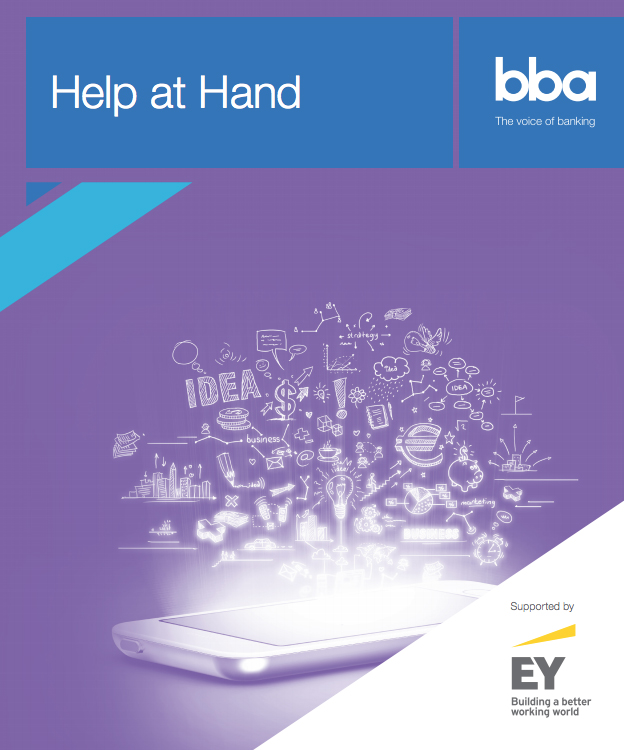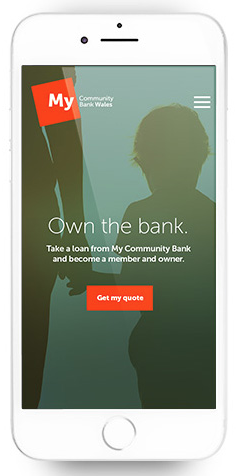In the age of digital technology, credit unions are changing the way they function – making use of digital channels to provide new services for their members. One of the biggest challenges for UK credit unions comes from fintechs, financial technology companies which are taking shares from traditional high street banking providers in areas such as payments and lending.
A report by Ernst and Young estimated that the UK’s fintech market is worth £20bn in annual turnover, with 18% of this being taken by emerging fintech. In contrast, credit unions had an annual turnover of £113m for the year ending June 2017.
While the UK has only four out of the top of 100 largest traditional fintechs, it accounts for half of the emerging ones in Europe. According to the EY report, the highest growth areas are peer-to-peer platforms, online payments and data and analytics products. The UK also has one of the highest levels of internet and mobile phone penetration globally and the highest amount spent on e-commerce in Europe.
Another important trend is an increase in consumer demand for mobile banking. Research conducted by Equinity, a provider of technology aimed at reducing regulatory burdens, showed that banking via a mobile phone or tablet was the most popular method. Around 48% of respondents said they were using a mobile banking app. More than half of all banking transactions in the UK are now done digitally.
The Way We Bank Now report for 2016, published by the British Bankers Association in collaboration with EY, showed that customers were using mobile apps 11 million times a day in 2015, a 50% increase from the previous year. Customer bank branch interactions went down – from 476 million in 2011 to 278 million in 2016.

The second biggest challenge for credit unions comes from payday lenders. Since the FCA’s crackdown on payday lenders, the number reduced from 400 to 144 at the end of 2016. The payday loans industry was worth £220m in 2017, a drastic drop from £2.5bn in 2013. However, payday lenders continue to set the benchmark on frictionless loan applications.
Some credit unions have an aversion towards the potential risks IT pose – but others have adopted new technologies either by working together or by partnering with fintech firms. Rainbow Saver, based in Lowestoft, UK, is one of the credit unions teaming up with The Change Account and its technology partner Payment Cloud Technologies to deliver a new form of transactional account, designed to simplify finances.
The collaboration started less than a year ago after Clyde Bank (the credit union’s initial pre-paid card partner) exited the market, meaning they had to look for a new partner to keep providing the service. With support from the national credit union trade body, Abcul, Rainbow Savers was able to get in contact with Raphaels Bank, the issuer of The Change Account card.
The account has no penalty charges for missed or late payments and no overdraft facility. It also offers automatic online Payment Alerts and a rewards programme. Members pay a set £2 monthly charge and have access to 24/7 UK-based customer support.
“We ended up with a better product. For us to be able to offer the pre-paid card at £2 a month is really good,” says Sally Chicken, chair of Rainbow Saver. Already 600 members of Rainbow Saver are using the card, the majority of whom had previously been financially excluded. The credit union is providing mobile and online banking too -over 75% of loan applications are coming from mobile phones. But the service goes beyond offering a credit card; support workers help people save or better manage their finances by setting up budgeting accounts, taking money and dividing it into agreed pots that cannot be accidentally spent.
“With really vulnerable persons we can load that card daily and we have a support worker who does supermarket shopping with the person. So it is a tailored service and one the banks don’t want to provide,” adds Ms Chicken.
Overall, 35 credit unions are offering the Change account, with 5,000 accounts in total.
“The Change Account product has certain wallet and budgeting facilities as well as lower fees for card holders which is why we chose to partner with them and promote their solution. It also has some key differentiating factors for user credit unions such as the lack of a ‘float’, which minimises risk and operational cost for the credit unions that use it,” says Matt Bland, head of policy at Abcul.
The project won the Best Fintech Partnership at the 2017 Banking Technology Awards.
Another example is the Engage account. Run by Contis Group, a payments company, it is offered by over 140 credit unions across the UK as a single national brand. It provides banking via online, mobile and an app, allows users to set direct debits and standing orders and withdraw cash from ATMs or transfer money; just like the Change Account, the Engage Account does not have an overdraft facility. Credit unions offer the account for different monthly rates.
Also positioning itself as an alternative to payday lenders is My Community Bank, launched in 2013 as the UK’s first online credit union based on the cloud-based back office system supplied by Mambu, a cloud banking software-as-a-service provider.

The credit union was initially set up as Brent Shrine Credit Union in 1979 to serve people living or working in the London Borough of Brent. It changed its name to My Community Bank and extended its common bond nationally to encompass the British South Asian diaspora. There are three credit unions in the My Community Bank network: Brent Shrine Credit Union (trading as My Community Bank); Loans and Savings Abertawe Credit Union (trading as My Community Bank Wales); and North Edinburgh and Castle Credit Union (trading as Castle Community bank).
Recently My Community Bank teamed up with Mespo, a fintech enabling users to save money on their utility bills by switching to other providers. The partnership – the first of its kind – was rolled out in November, with members benefiting from Mespo’s financial management product in order to improve their credit score and save more money. Mespo uses psychometric questionnaires which users complete to reveal their ability to save or spend when they have no credit history. The software links to their bank accounts and tells them how much to spend on certain products and services.
My Community Bank also uses CULoans.co.uk, an online, shared marketing platform. Participating credit unions are charged for completed loan applications, the charge reflecting the economic value of the loan. Using a price comparison website – Moneysupermarket – the CULoans site can instantly process loan applications. CU Loans receives over 50,000 loan applications via their platform every year.
With more and more partnership between fintechs and credit unions emerging, the trend is likely to continue.

